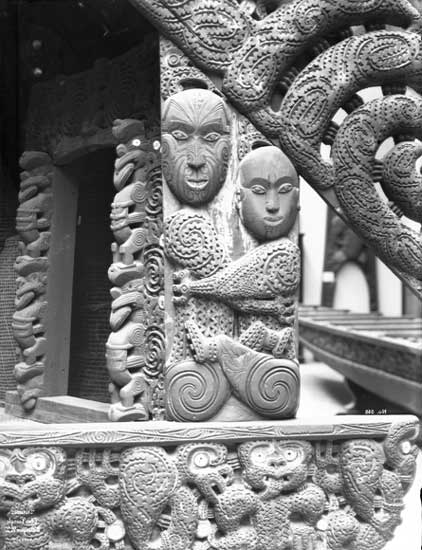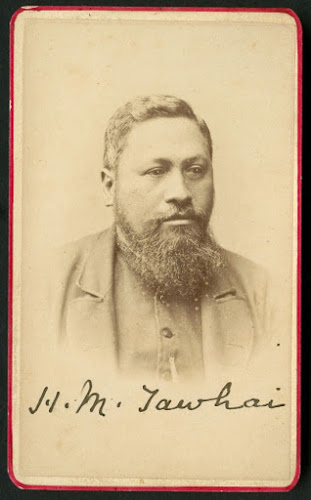New Zealand Wars, Land Wars, Māori Wars?
Last week a group of Otorohanga College students presented a petition to Parliament calling for a national day of memorial to remember the wars fought on New Zealand’s own shores. It is a cause I support and the petition, which attracted over 10,000 signatures (including mine), and its handover attracted significant media interest. But one thing that caught my eye was the description used in media reports for the wars themselves. Many referred to these as the ‘Land Wars’, the ‘New Zealand Land Wars’ or even the ‘Māori Land Wars’. There appeared to be little awareness on the part of journalists that what historians have called the wars has changed over time.
Do labels really matter? Well, they do because they convey some key messages about the nature of the wars, their causes and participants. To begin with it was common to refer to this series of conflicts as ‘the Māori Wars’. That was consistent with the British tendency to name wars after their enemies, like the Boer War, the Zulu War, or the Indian Mutiny. But there are some obvious problems with such a label. For a start it tends to sheet home responsibility for the wars to Māori, while rendering invisible the other combatants.
 |
| Māori veterans of the Waikato War, 1914, 1/1-017975, ATL |
In the 1960s some historians tried to correct this by adopting the label ‘the Anglo-Māori Wars’. But there are issues here too, not least in that some Māori fought on the ‘Anglo’ (that is, British or Crown) side. And given estimates that up to 40% of the imperial troops who fought in New Zealand were Irish the ‘Anglo’ part was no more accurate either. So there are big problems with any label that purports to accurately describe those involved in the wars in any kind of succinct yet accurate way.
As historians began to delve deeper into the causes of the wars, some felt that ‘Land Wars’ was altogether more appropriate. It pointed the finger at the settlers, whose land hunger and greed was in this way highlighted as the fundamental factor behind the wars. This reflected a shifting historiography that was beginning to question the older assumptions about the wars (based in large part on an uncritical acceptance of official Crown explanations for their outbreak) in favour of a viewpoint more sympathetic towards Māori perspectives.
 |
| James Cowan, 1929, 1/1-018597, ATL |
But later historians argued that the wars were about much more than just land – they were a conflict over the future of New Zealand as a whole. Hence in 1986 James Belich revived ‘the New Zealand Wars’ – a title employed by James Cowan in the 1920s (and widely used in Britain and New Zealand the 1860s to describe the conflicts as they were being waged before falling out of favour as ‘the Māori Wars’ became standard). Cowan had been ahead of his time in favouring ‘the New Zealand Wars’ – part of his efforts to convince a sceptical Pākehā populace that their country had a history of its own worth remembering.
Although there have been a few attempts to challenge this since, the New Zealand Wars, as Belich and Cowan preferred to call them, has mostly been favoured since the 1980s. It is a label that I prefer because it avoids mono-causal explanations for the wars and simplistic descriptions of those involved.



Good article. I tend to use 'colonial New Zealand Wars' myself (note small 'c' on 'colonial') amongst my body of international wargaming friends, as it sets the context: https://arteis.wordpress.com/2014/08/19/call-to-arms-1-maori-vs-british/
ReplyDelete